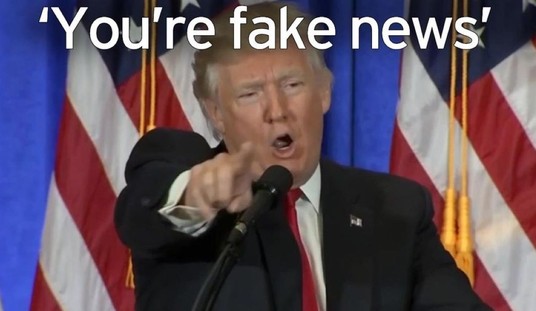So, over the last day or so, pro-life advocates have erupted in anger towardTrump on the issue of abortion and we thought we would take a moment to separate truth from falsehood on this, to help inform you as a voter.
And bear in mind, we are not going to say any particular people are is lying on this topic. A lie is telling a false statement knowing it is false. This author says Tim Walz lied about his military service, because Tampon Tim knows what the truth is and he didn’t tell the truth. But we can’t always be sure the people who are getting things wrong on these abortion issues know what the truth is, so we assume the best.
A lot of this controversy mostly surrounds what is being called Amendment 4 in Florida. This is a ballot initiative that would enshrine the right to an abortion, to a degree, in the Florida Constitution. In our experience Ballotpedia is pretty reliable on issues like the language of a ballot initiative and so we refer to their summary:
It isn’t defined.https://t.co/iebVT0RaQ3
— The Monster (@SumErgoMonstro) August 30, 2024
The piece says the following will be presented to the voters:
A ‘yes’ vote supports adding the following language to the Florida Constitution’s Declaration of Rights: ‘… no law shall prohibit, penalize, delay, or restrict abortion before viability or when necessary to protect the patient’s health, as determined by the patient’s healthcare provider.’ Amendment 4 would maintain the current constitutional provision that permits a law requiring parents to be notified before a minor can receive an abortion.
A ‘no’ vote opposes amending the Florida Constitution's Declaration of Rights to provide that the state cannot ‘... prohibit, penalize, delay, or restrict abortion before viability or when necessary to protect the patient’s health, as determined by the patient’s healthcare provider.’
So, for instance, we see people making claims like this:
Totally devastating.
— Lila Rose (@LilaGraceRose) August 29, 2024
President Trump just announced he will vote in support of Amendment 4 in Florida, which permits abortions on babies up until birth, without restriction.
Pro-Life America, speak now!!
Lila Rose is the President of Live Action and, as you can see, she is making two claims. First, she is claiming that Amendment 4 would allow abortion up until birth. And second, she is claiming Trump personally will vote for this amendment. The first is simply wrong, and the second is probably the result of Trump not speaking clearly enough. Allow us to explain.
The first claim—that this proposed amendment to the Florida Constitution would allow abortion up until birth—is simply wrong. That is not what it says and the Florida Supreme Court is not likely to interpret it that way.
The Florida Supreme Court is famously conservative. While in the Bush v. Gore fight, they were famously dominated by Democratic appointees, now every single justice is a Republican appointee. With Ron DeSantis being a popular governor there, that isn’t likely to change for a while. Chances are, then, the first crack at how to interpret this amendment is going to be by justices who don’t make things up like Democratic appointees often do.
But even a very liberal justice is not likely to interpret the term ‘viability’ as meaning ‘up until birth’ because logically speaking, if the authors meant ‘up until birth’ they would have just said that. And in law, when the text of a law—like a statute or an amendment—uses a term that is well understood in the law, the assumption is that they are incorporating that understanding. Viability is not a new word in the law. In Planned Parenthood of Southeastern Pa. v. Casey, 505 U.S. 833 (1992), the Supreme Court declared that viability would mark the dividing line on how deeply the state can regulate abortion, when upholding what they considered the central holding of Roe v. Wade, 410 U.S. 113 (1973):
It must be stated at the outset and with clarity that Roe’s essential holding, the holding we reaffirm, has three parts. First is a recognition of the right of the woman to choose to have an abortion before viability and to obtain it without undue interference from the State. Before viability, the State's interests are not strong enough to support a prohibition of abortion or the imposition of a substantial obstacle to the woman's effective right to elect the procedure. Second is a confirmation of the State's power to restrict abortions after fetal viability, if the law contains exceptions for pregnancies which endanger the woman's life or health. And third is the principle that the State has legitimate interests from the outset of the pregnancy in protecting the health of the woman and the life of the fetus that may become a child.
Casey also got more specific about what viability meant: ‘the time at which there is a realistic possibility of maintaining and nourishing a life outside the womb[.]’
This and other decisions in state and federal courts turned viability into a relatively known term. Of course, Dobbs overturned all of this, and essentially turned the issue back to the states with few restrictions, but what a court—especially a conservative court—is likely to say is that anyone voting for the amendment would understand it as incorporating all that pre-Dobbs law dealing with viability.
Another thing to note about viability is that it is very much tied to medical technology. This was acknowledged in Casey, the Court pointing out that viability back when Roe was decided in the 70’s was very different than viability at the time of Casey in the 90’s and it is likely to still be different even today. And who knows what it might be a few hundred years from now?
For instance, this author has enjoyed many of the books of sci-fi and fantasy author Lois McMaster Bujold, including Barrayar. Here’s part of the cover of that book:
 And if you look very closely you will notice what looks like a jar with a baby inside. That is a science fiction technology called an artificial womb and it does exactly what it sounds like: It allows the gestation of babies that the mother can’t or won’t carry. For instance, the book notes that several women had been raped in a previous war and got pregnant as a result. But rather than aborting the babies or carrying the children to term, the women simply put the babies into this artificial womb and moved on with their lives. Meanwhile, their government sent the entire device—gestating fetus and all—back to the planet where the rapists had come from, saying more or less ‘it’s your problem, now.’ Indeed, the plot in Barrayar centers around a woman who was pregnant, who had to put her child into an artificial womb for medical reasons when she was subjected to a chemical attack, only for someone to steal the device, requiring her to rescue her unborn baby.
And if you look very closely you will notice what looks like a jar with a baby inside. That is a science fiction technology called an artificial womb and it does exactly what it sounds like: It allows the gestation of babies that the mother can’t or won’t carry. For instance, the book notes that several women had been raped in a previous war and got pregnant as a result. But rather than aborting the babies or carrying the children to term, the women simply put the babies into this artificial womb and moved on with their lives. Meanwhile, their government sent the entire device—gestating fetus and all—back to the planet where the rapists had come from, saying more or less ‘it’s your problem, now.’ Indeed, the plot in Barrayar centers around a woman who was pregnant, who had to put her child into an artificial womb for medical reasons when she was subjected to a chemical attack, only for someone to steal the device, requiring her to rescue her unborn baby.
In other news, this author is a nerd. So there.
And lest you think that is ridiculous speculative fiction concept that could never exist, artificial wombs already exist … for lambs:
Scientists have created an "artificial womb" in the hopes of someday using the device to save babies born extremely prematurely.
— Massimo (@Rainmaker1973) August 30, 2024
Tthe device has only been tested on fetal lambs.pic.twitter.com/u2fo9bjCfI
The race is on.https://t.co/iuGD0B4P24
— Tom Spriggs (@Ritalynman) April 27, 2024
According to the second link, the device has also been successfully used for piglets, and as of the date of that publication, they are contemplating human trials—which is naturally an ethical thicket that we’re not getting into here. Our point is that it seems likely—even inevitable—that if this Amendment 4 is ratified, the way we are going, there is likely to be a day where viability begins literally right after sperm meets egg and in states that follow the viability standard, abortion can be effectively banned unless necessary to protect the life or health of the mother.
Of course, wholly apart from the viability standard—which this author doesn’t support—there are other problems with this Amendment 4. For one thing, while it says that parents can be notified, that noticeably doesn’t say that they have any right to prevent their child from getting an abortion, before or after viability. Not only is that objectionable to many people, but that might even be unconstitutional under the Federal Constitution. As the Supreme Court said in Troxel v. Granville, 530 U.S. 57 (2000):
The liberty interest at issue in this case—the interest of parents in the care, custody, and control of their children—is perhaps the oldest of the fundamental liberty interests recognized by this Court. More than 75 years ago, in Meyer v. Nebraska, … we held that the ‘liberty’ protected by the Due Process Clause includes the right of parents to ‘establish a home and bring up children’ and ‘to control the education of their own.’ Two years later, in Pierce v. Society of Sisters, … we again held that the ‘liberty of parents and guardians’ includes the right ‘to direct the upbringing and education of children under their control.’ We explained in Pierce that ‘[t]he child is not the mere creature of the State; those who nurture him and direct his destiny have the right, coupled with the high duty, to recognize and prepare him for additional obligations.’ … We returned to the subject in Prince v. Massachusetts, … and again confirmed that there is a constitutional dimension to the right of parents to direct the upbringing of their children. ‘It is cardinal with us that the custody, care and nurture of the child reside first in the parents, whose primary function and freedom include preparation for obligations the state can neither supply nor hinder.’
(Citations omitted). It is for the same reason that we think many of the state laws that purport to allow so-called ‘gender transition’ behind parents’ backs is unconstitutional. We will note that this case also made it clear that these rights only apply to ‘fit’ parents, so parents who are abusive or so mentally ill they can’t function don’t have the same rights. And while Casey was decided before Troxel, it seems to accommodate parental rights more fully than this proposed amendment does:
Except in a medical emergency, an unemancipated young woman under 18 may not obtain an abortion unless she and one of her parents (or guardian) provides informed consent as defined above. If neither a parent nor a guardian provides consent, a court may authorize the performance of an abortion upon a determination that the young woman is mature and capable of giving informed consent and has in fact given her informed consent, or that an abortion would be in her best interests.
But Amendment 4, as written, only provides for notice and no requirement of parental consent, ever. That might make sense in a medical emergency, but it seems completely unjustifiable if there isn’t an emergency.
And speaking of emergencies, let’s look at the language from Amendment 4 again:
no law shall prohibit, penalize, delay, or restrict abortion before viability or when necessary to protect the patient’s health, as determined by the patient’s healthcare provider.
(Emphasis added.) Naturally, there is a concern that this exception might essentially eat up the entire rule. ‘Yep, we had to abort, because she had an ingrown toenail and we couldn’t risk it.’ One open question, for instance, is if this doctor can be limited by a good faith requirement and can the doctor define what constitutes a sufficient health need, or does the legislature get to do that? We suspect a conservative state Supreme Court will allow the legislature to define the term what ‘protecting a woman’s health’ actually means so that the doctor has to at least claim risk of death or serious injury, and they will require the healthcare provider to have good faith, so they can’t just make stuff up or pretend a minor inconvenience justifies abortion, but we admit that this language is not so clear on that point.
So that addresses the claim that this allows abortion up until birth, but what about Trump’s position on it?
Well, we noted earlier, Trump has made it clear today that he was opposed to this Amendment 4—in part based on his own misinterpretation of it. Here’s that clip again:
#BREAKING: Former President Trump is "no" on Florida's abortion Amendment 4, saying the amendment is too extreme
— Florida’s Voice (@FLVoiceNews) August 30, 2024
"I'll be voting no." pic.twitter.com/YoGuIVMR1o
But that was today, and Ms. Rose couldn’t have known yesterday what Trump would say today. Here’s what we were hearing from him yesterday:
"I think the six week is too short, there has to be more time," former President Trump says how he'll vote on an abortion rights amendment in Florida. pic.twitter.com/rQAdPtW9i0
— NBC Politics (@NBCPolitics) August 29, 2024
To be very blunt, we can completely understand why Ms. Rose mistakenly believed that Trump supported Amendment 4. NBC states in the text accompanying the video that Trump was saying he will vote for Amendment 4. But he really doesn’t quite say that. And can we be blunt here for a moment? We think Trump either had no idea what Amendment 4 was, or he didn’t pay enough attention to the question to realize she was asking about it. So, when asked very directly whether he was voting for it, he simply said he will vote for more than a six-week cut off, arguably answering the question he wanted to answer, rather than the reporter’s question. That was a great tactic in his debate with Biden, but we think it was a mistake here and we are glad he clarified the issue today.
And Trump is right to go ‘big picture’ on this. Roe was a profoundly anti-democratic decision. It said that abortion policy was going to be made mostly by nine unelected judges, rather than the state legislatures, which are more democratic. The party that puts ‘democratic’ right in its name believes this was the right thing to do. They think we the people are too stupid to vote on abortion policy.
So as long as Roe was good law, we had no right to vote on abortion policy, for the most part. Now, because of Trump’s appointments, we have that right. The fight over Roe wasn’t just about what we think the policy should be on abortion, but also who gets to decide? Nine unelected justices or the people? By overturning Roe, the decision was handed back to the people, through their state governments.
By comparison, the Biden-Harris administration has declared their desire to overthrow the Supreme Court so they could end the independent judiciary as an institution. But she doesn’t even have to go that far to deal serious damage to the Constitution. A few months back this author wrote a piece here called Why You Should Be ‘Never Biden:’ The Supreme Court Edition and while we mentioned Biden in the title, we always had our suspicion that they would replace him, which is why we wrote:
But I am here to explain to you why I still plan to vote for pretty much any Republican who has a reasonable chance of being the nominee, over Biden or any other Democrat who has a reasonable chance of being the nominee.
Of course, at that time, we correctly believed Trump was almost certainly going to be the nominee and we felt less certain that Biden would be his party’s nominee, but still felt the safe money was on him. But we still wrote it contemplating the possibility of a Harris nomination. And while that piece is VIP and thus you have be a member to read the whole thing, we’ll sum it up here for the rest of you.
The basic idea was that if the two oldest Supreme Court justices—Thomas and Alito—left the Court and were replaced by Democratic appointees, the left would have a one-vote majority on the Supreme Court, and that would be catastrophic. We talked about specific cases and counted the votes and showed how a liberal majority would vote to gut the First and Second Amendment. And we also noted that such a majority was likely to reinstate Roe. Yes, of course, that would require overturning a very recent decision and looking very craven, politically, with the Supreme Court saying, in essence in 1973 that ‘There was a right to an abortion in the Constitution!’ then saying in 2022: ‘No, wait … there isn’t.’ and then saying after a Harris administration that ‘Nope, we were wrong there is a right to abortion after all.’—and all without any actual text speaking about abortion or any issues related to reproduction at all.
So, this election could easily determine not only abortion policy but whether or not we get to vote on abortion policy—not to mention whether or not we can speak freely and carry a gun to protect ourselves and the republic. Respectfully, we think that is much more important than whether Trump as an individual voter wants a specific policy on abortion.
And not for nothing, but Trump doesn’t want any federal intervention on abortion—with one exception which we will get to in a minute. Here is J.D. Vance discussing the issue:
JD Vance says that President Trump would veto any abortion ban that came across his desk.
— Denny Burk (@DennyBurk) August 25, 2024
This includes vetoing a proposed ban on late term abortion when the unborn baby feels pain.
Horrific. pic.twitter.com/5SzdcWacvm
This led Matt Lewis to write this:
JD Vance believes the federal government should be involved in getting grocery prices down.
— Matt Lewis (@mattklewis) August 25, 2024
JD Vance doesn’t believe the federal government should be involved in defending the right to life of the unborn.
These are defensible positions. But not what a fiscal *or* social… https://t.co/6RCAvNVotQ
The cut off text says: 'But not what a fiscal *or* social conservative might expect…'
Maybe this isn’t the position of a fiscal or social conservative, but how about a Constitutional conservative?
When we talk about passing some kind of federal abortion statute that overrides state laws—whether it overrides state pro-abortion laws in favor of federal pro-life laws or vice versa—you always have to start with ‘where does this federal power come from?’
Very often in states the rule is that every power not denied to the government is granted. So, in states like that, if you want to say a state can’t regulate something, you have to find something in their constitution that says that they can’t regulate it. By comparison, with the Federal Constitution, all powers not granted to the Federal Government are denied. This is something that not only conservative jurists say but even the liberals on the Supreme Court will at least give lip service to this.
So, what in the Constitution would grant the Federal Government the right to regulate abortion, in the states? As we said a minute ago, it never mentions abortion or reproductive issues at all. Most federal power comes from the Commerce Clause, which grants the Federal Government the right to regulate interstate commerce—meaning commerce between states. Now, people who watch the Court know that it has allowed the Federal Government to do things in the name of that power that we don’t think comports with what the founders understood that term to mean. But as expansive as that interpretation has been, there are limits to that power.
For instance, in United States v. Morrison, 529 U.S. 598 (2000) the Supreme Court struck down the part of the Violence Against Women Act that created a federal civil remedy when a person was the victim of sex-based violence—meaning violence where the victim was chosen based on their sex. That obviously includes crimes such as rape, or domestic abuse, but if a man punched a woman who was a stranger to him just because he hates women, that would also be covered. Why? Because that really is a matter of just ordinary crime and civil wrongs and that is primarily the domain of the states. So, the Federal Government has no power to address violence against women, but people think we can use the Federal Government to address violence against unborn babies?
Even if you personally believed that the Constitution would allow that, we don’t think there are five justices on the current Supreme Court that would interpret it that way.
On the other hand, many of the steps one could take to lower grocery prices can easily be justified under the Commerce Clause, especially as it is currently interpreted by the Supreme Court. So a Constitutional Conservative has no trouble threading that needle.
Of course, a sharp-eyed reader might have noticed that we kept talking about the regulation of abortion in the states, and naturally you might wonder what the Constitution says about regulation of abortion in the territories—D.C. and various scattered lands such as Puerto Rico. Well, in the territories, the Federal Government is seen as having all powers not denied—much like many states—so in theory Congress could set abortion policy in all of the federal territories without any constitutional concerns. But there has been a tradition of letting these territories’ run themselves and make those policy decisions for themselves, much like the states. This author thinks in the special case of D.C., Congress needs to intervene more to ensure the safety of federal workers and officials, and to ensure that Americans can come to D.C. to protest and petition their government for a redress of grievances without being physically attacked—in part by guaranteeing the right to bear arms to Americans coming in from outside of D.C.. But outside of those issues, we think it’s perfectly reasonable to say the territories should be allowed to make their own policy.
(Actually, this author thinks it is beyond time to fish or cut bait with the territories. Except for D.C. (which is a special case because it is our capital), it is time to make them either full states (or parts of other states) within ten years, or to make them into independent countries. This seemingly permanent ‘territorial’ status is colonialism by another name, and the founders would be appalled that we are doing it. But that is another topic.)
Finally, we would be remiss if we didn’t discuss Trump’s proposed federal support for in-vitro fertilization (IVF) treatments:
I have never been more proud of a policy! #IVF pic.twitter.com/YfBWfbLK2T
— Eric Trump (@EricTrump) August 30, 2024
This author isn’t a doctor. But we know IVF is controversial in some circles because, as we understand it, they often create dozens of fertilized eggs at once, and then implant those eggs as needed by the woman. Then the problem becomes what do you do with the extras, after the woman has had all the children she wants? Very often the solution is disposing of the remaining eggs—effectively killing them. And since many believe life begins at conception, that is dozens, maybe hundreds of abortions, that Trump would be subsidizing—or forcing insurance companies to subsidize.
Now first, this is smart politics. Like the policy or hate it, it’s a complete rebuttal to the claim that Trump would ban IVF. ‘I wouldn’t ban it! I would subsidize it!’
And before you get overheated, take a moment to look at your abortion laws. For instance, Florida’s six-week ban is considered one of the most radically pro-life laws in the country. Here’s what it says:
TERMINATION AFTER GESTATIONAL AGE OF 6 WEEKS; WHEN ALLOWED.—A physician may not knowingly perform or induce a termination of pregnancy if the physician determines the gestational age of the fetus is more than 6 weeks unless one of the following conditions is met:
Then it goes on to list exceptions such as a medical emergency, fatal fetal abnormalities, rape, incest and human trafficking. We’re not going to get into all the specific rules, but here’s the important thing: For six weeks, a person is allowed to have an abortion for whatever reason they want—a good reason, a bad reason or no reason at all. So even in a relatively pro-life state, there is a period where unfettered abortion is allowed before a certain gestational age—which effectively makes IVF legal. We are not sure any state bans IVF—Alabama seemed to accidentally ban it, and that ban was famously overturned by the legislature almost immediately after a firestorm erupted. So, whatever you might personally feel, there is doesn’t seem to be any general public support for a prohibition of IVF.
Of course, there is a rational difference between something being legal and something being subsidized, but its up to you to decide as a voter how you feel about it and how you vote as a result.
For us, while we don’t agree with Trump on everything on abortion or most other topics, we are kind of fans of freedom of expression and the right to bear arms, and we are not willing to risk letting a Harris administration take away those rights. And while this is not as important to us as the first two amendments, for the first time in our lives we are allowed to vote on abortion policy and we don’t want her to take away that, either. So this author will vote for Trump despite our disagreements with him.
But at the same time, this gentleman offered valid a counter point:
It’s possible to still vote for Trump and call him out for this. It’s not expecting too much that the leader of the GOP be unapologetically pro-life. If I wanted a pro-abort zealot, there’s already a party for that.
— Polite Nomad (@PoliteNomad) August 30, 2024
‘Nomad’ was talking about a different issue related to abortion, but there is nothing wrong with a person strategically playing ‘hard to get’ on a topic in an effort to persuade Trump to come closer to his or her views, while ultimately deciding that when it is time to actually vote, to vote for Trump even if one has to hold your nose on a few topics.
But again, our primary goal in this article is to separate truth from fiction on the issue and allow you to make up your own mind on these issues for yourself. If you live in Florida, hopefully you have a better idea what Amendment 4 is likely to actually do and you can decide whether to vote for it accordingly. And if, like most Americans, you don’t live in Florida, you can decide how you feel about Trump’s views on abortion for yourself.

























Join the conversation as a VIP Member